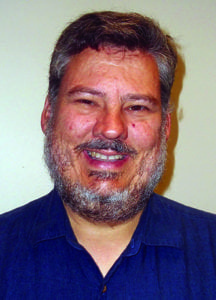While the Yamim Noraim (High Holy Days) have just ended and the new year has barely begun, we are marking the end of another cycle, that of the Shelosh Regalim, our three pilgrimage festivals.
We began with Pesach and the hope of spring. The world seemed new as it returned to life and shook off the blanket of snow to reveal blossoming green beneath. We felt the hope of boundless opportunities as we celebrated freedom and the exodus from Egypt.
The freedom of Pesach yielded to the responsibilities of Shavuot. We felt confident in our ability to move forward, armed with God’s faith in us with the gift of Torah.
Autumn is now upon us, the leaves have turned and there is a chill in the air. Sukkot arrived. The festival cycle drew to its close this week. We are joyful as we celebrate a successful harvest and conclusion to the festival cycle and remember divine protection during the years of wandering in the wilderness. In fact, while joyful celebration is implicit on all of our festivals, on Sukkot we are explicitly instructed to be joyful in our celebration.
Why do we need to be reminded to be rejoice? With Sukkot, we look forward to winter and the unknown. What will happen to seeds that have yet to germinate, to plants not yet planted? What will the months ahead bring? Will they bring us rains when we need them or will they bring floods? Will we be secure and stable or will health or economic setbacks leave us unsteady as we move forward?
The symbol of Sukkot, the sukkah, reminds us of that uncertainty. A simple rainstorm can bring down the schach, the covering of the sukkah. A strong wind can bring the entire sukkah down. The sukkah is not built nor meant to be permanent, but instead a temporary respite from impending storms. It reminds us that the security that we might feel is in actuality transitory, capable of dissolving around us in the blink of an eye.
Our special reading for Sukkot, Kohelet or Ecclesiastes, underpins this attitude. While we read of love and youthful passion with the Song of Songs at Pesach and recaptured love and affection with Ruth at Shavuot, we look back on life with a blend of nostalgia, cynicism and realism as we read Ecclesiastes. The prism of uncertainty can cause us to view days gone by as brighter than they might have been and the future as darker than it might be.
The genius of our tradition is to celebrate today. The past is over; the future has not yet come to be. All we have for certain is today. Gazing into an uncertain and unknown future, we can take faith in the shelter we find through friends and family, from the goodness we recognize in our lives, and from our sense of divine support and security, as we celebrate the goodness and joy we can find each day.
•••
Shabbat candles should be lit on Fridays, October 28 at 6:29 p.m., November 4 at 6:22 p.m., November 11 at 5:15 p.m., November 18 at 5:10 p.m. and November 25 at 5:06 p.m.
•••
Rabbi David Feder (Reform) has volunteered to provide Torah commentaries for Community.



